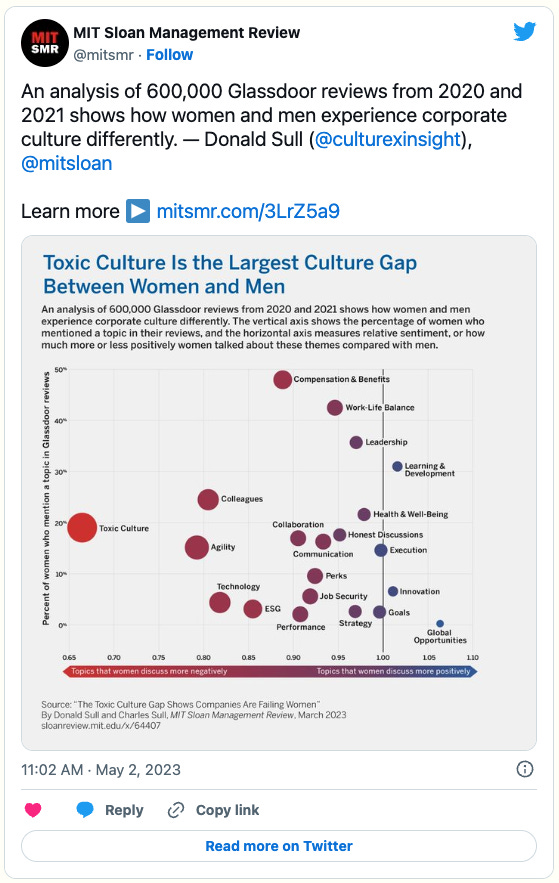A Rationalized Conformity
Wiliiam H Whyte Jr | We'll Miss Twitter | Factoids | A 2,000 Year-Old Comment on Time

Quote of the Moment
Groupthink is becoming a national philosophy. Groupthink being a coinage -- and, admittedly, a loaded one -- a working definition is in order. We are not talking about mere instinctive conformity -- it is, after all, a perennial failing of mankind. What we are talking about is a rationalized conformity -- an open, articulate philosophy which holds that group values are not only expedient but right and good as well.
| William H. Whyte Jr. (1952)
I think this quote by Whyte is a complement to Zanini’s tweet, below.
We’ll Miss Twitter
I’m going to have to find another way to gather insights now that Elon Musk is planning to have us pay to read the news on Twitter.
…
I replied:
Corporate culture is just inordinately slow to progress. And that is due to all involved, not just leaders, although leadership is the largest foot on the brake.
…
…
Derek Thompson citing Benedict Evans. I agree with this point of view.
…
Factoids
About 40 percent of electricity in the United States is generated using zero-carbon fuels.
…
Though many workers have returned to offices at least a few days a week, 18.6 percent of U.S. office space is available for rent, according to Cushman & Wakefield, a commercial real estate services firm, the most since it started measuring vacancies in 1995. | New York Times
…
The appearance of the word “passion” in US job listings increased nearly tenfold from 2007 to 2019. | Working Knowledge
…
A full half of New York City’s households did not have enough money to comfortably hold down an apartment, access sufficient food and basic health care, and get around. Households in all five boroughs needed to be pulling in at least $100,000 to afford housing, food and transportation, and to have a shot at being able to plan for the future. | Eliza Shapiro citing a report from Fund For The City Of New York.
…
If current trends continue the world will go from around 400 disasters per year in 2015 to an onslaught of about 560 catastrophes a year by 2030, the scientific report by the United Nations Office for Disaster Risk Reduction said. By comparison from 1970 to 2000, the world suffered just 90 to 100 medium to large scale disasters a year. About 90% of the spending on disasters currently is emergency relief with only 6% on reconstruction and 4% on prevention. In 1990, disasters cost the world about $70 billion a year. Now they cost more than $170 billion a year. | Seth Borenstein, Weary of many disasters? UN says worse to come
A 2,000 Year-Old Comment on Time
I am working on an essay for Sunsama, A Brief History of Time, and I came upon this tidbit. Stephanie Pappas wrote about the Roman playwright Plautus, who was vexed by the appearance of the first public sundial in 263 BCE, and he included a character who complained of the new-found adoption of timekeeping:
Keep reading with a 7-day free trial
Subscribe to workfutures.io to keep reading this post and get 7 days of free access to the full post archives.





